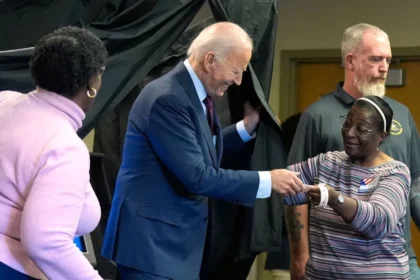On Tuesday, May 10th, a Manhattan federal jury found former President Donald Trump liable for sexually abusing journalist E. Jean Carroll in a luxury department store dressing room in the spring of 1996. The jury awarded Carroll $5 million for battery and defamation.
Carroll alleged that Trump raped her in the Bergdorf Goodman department store and then defamed her when he denied her claim, said she wasn’t his type, and suggested she made up the story to boost sales of her book. Trump denied all wrongdoing, claiming that the case was made up and politically motivated. He also denied knowing Carroll, although he admitted taking a photo with her and her husband “years ago.”
When asked by CNN’s Kaitlan Collins whether the verdict would disqualify him from being president or impact women voters, Trump answered that he didn’t think so. He claimed that there were not many voters who would think that and repeated his denial of the allegations.
While the jury found that Trump sexually abused Carroll, sufficient to hold him liable for battery, they did not find that Carroll proved he raped her. Trump does not face any jail time as a result of the civil verdict.
Carroll filed the lawsuit last November under the “New York State Adult Survivors Act,” a state bill that opened a look-back window for sexual assault allegations like Carroll’s with long-expired statutes of limitation.
The verdict in the Carroll case could have potential implications for Trump’s future legal battles, as he faces several other accusations of sexual misconduct. It also comes amid his potential run for president in 2024 and ongoing speculation about his political future.
Additionally, the verdict may have implications for women voters, who have been a critical voting bloc in recent elections. Some political analysts suggest that the verdict could harm Trump’s efforts to appeal to women voters, especially given the recent allegations against Republican Representative Matt Gaetz and other high-profile male politicians.
The Carroll case also highlights the ongoing debate over the prevalence of sexual assault and harassment in American society and the power dynamics at play in these situations. The #MeToo movement, which gained widespread attention in 2017 and 2018, brought these issues to the forefront of national conversations, leading to changes in laws, workplace policies, and societal attitudes toward these issues.
In conclusion, the verdict in the E. Jean Carroll case may have far-reaching implications for both Donald Trump’s legal battles and his political future, as well as for women voters and the ongoing conversation about sexual assault and harassment in American society.




